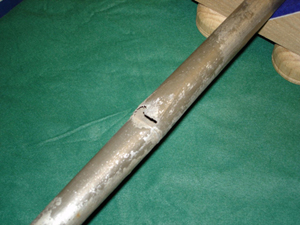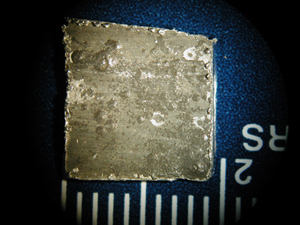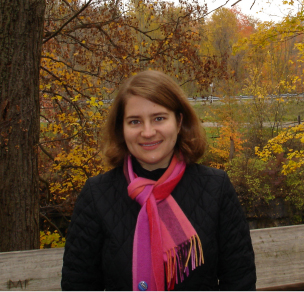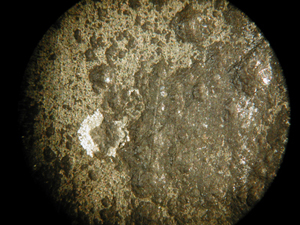Catherine grew up in Ohio, went to Oberlin College, and then recieved a Ph.D. from Cornell University. After spending some time doing research in Sweden, she returned to Oberlin College and is currently teaching chemistry there. She studies the materials used in historic organ pipe materials and tries to find new ways to reduce corrosion using cutting-edge methods such as x-ray diffraction, scanning electron microscopy, and atomic force microscopy.
Tell us a bit about your background.
I grew up near Cincinnati, Ohio, and went to Oberlin College, also in Ohio. It is a small school with programs in the sciences as well as in music and the arts. I went to graduate school in chemistry and got my PhD at Cornell University, and afterward I spent some time doing research in Sweden. In 2006 I got the opportunity to begin teaching at Oberlin, the same place where I had been a college student!
When you were a kid what interested you about science? What was the first experiment that you did?
I have always been interested in making things and doing things like building models and working on crafts. Science also often involves inventing something new, figuring out how to build a device, or designing an experiment. I think that the first experiment I ever did was probably the “kitchen chemistry” reaction of mixing baking soda and vinegar and watching the transformation.
And so what happened when you mixed this stuff up? Did it make a mess?
The mixture began to bubble and fizz, and it almost ran over the sides of the container.
What are your days at work like being a professor?
I spend at least some time teaching every day. I teach chemistry classes, and I also work with students who are doing research in my laboratory. I also spend time planning my classes and preparing demonstrations and activities for my students.
Is that fun? Is it what you imagined it would be?
In most ways, it is how I expected it would be. It is interesting to learn about what happens “behind the scenes” at a school and to be part of some of the planning and decision-making that goes on. I find that it is a lot of fun to work with students, and I also enjoy the fact that this is a job where I am always continuing to learn new things, too.
 Where do you come up with your ideas?
Where do you come up with your ideas?
I get a lot of ideas from reading articles that other scientists have written about their research and from meeting other scientists at conferences.
Part of your research is studying pipe organs, are you a musician?
I actually play the organ, which is how I got interested in this research project. I found out that very old organs are often damaged by corrosion, which causes holes to form in their pipes. I was able to become part of a group of scientists that is trying to find out why this happens and how it can be prevented. It turns out that the cause of the corrosion is acid that comes from the wood that is used to build the organs. The acid is released as part of the natural aging process of wood, and it attacks the metal to first form small pits and later much bigger cracks and holes. There might be ways to stop this by protecting the metal from the acid or by finding a way to reduce the amount of acid in the organ.
 When you hear a sound do you think about the science behind the sound and try to figure out what materials are involved. Like you hear a bell and go think! That is made of copper?
When you hear a sound do you think about the science behind the sound and try to figure out what materials are involved. Like you hear a bell and go think! That is made of copper?
It’s very interesting to think about how materials affect sound. You’ve probably noticed that hitting a piece of metal (like a bell) makes a very different sound than tapping a wooden box or a plastic container. If you were to look at these materials under a strong microscope, you would see that their structures are different. The differences in their structures cause them to interact with sound waves in different ways. You’re probably noticed that the sounds people’s footsteps make as they walk down the hallway are not all the same. This is partly because of the different materials used to make the soles of their shoes!
If you weren’t doing science what do you think that you might be doing?
I really enjoy teaching, so I think that I would be still be a teacher or professor, but in a different subject.


